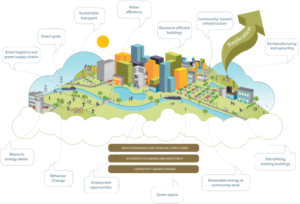How to ask for a promotion is a pivotal moment in any professional’s career, blending ambition with strategic communication. Navigating this request can often feel daunting, but with the right preparation and approach, you can significantly enhance your chances of success. Understanding your achievements, aligning them with your company’s goals, and presenting a compelling case are all crucial steps in this journey.
In this discussion, we will delve into the essential elements of preparing for a promotion request, crafting a persuasive proposal, and the importance of following up professionally, regardless of the outcome. By equipping yourself with these strategies, you’ll be well-prepared to advocate for your career advancement.
Preparing for the Promotion Discussion
Preparing for a promotion discussion requires thoughtful consideration of your contributions and the value you bring to the organization. This preparation not only boosts your confidence but also sets a clear foundation for the conversation. Understanding your achievements and the overall market landscape plays a crucial role in articulating your case effectively.
Identifying Accomplishments and Contributions
Recognizing your achievements is vital in making a compelling case for a promotion. Consider the following aspects to help you Artikel your contributions:
- Quantifiable Results: Highlight achievements that can be measured. For instance, “Increased sales by 30% over the last quarter” provides concrete evidence of your performance.
- Project Leadership: Discuss any projects where you held a leadership role, showcasing your ability to drive results and coordinate teams.
- Skill Development: Emphasize new skills or certifications you have acquired that add value to your current role and future positions.
- Team Collaboration: Mention instances where you successfully collaborated with other departments or teams to achieve company objectives.
“Demonstrating the impact of your work is key to a successful promotion discussion.”
Importance of Self-Branding in Career Growth
Self-branding is essential in distinguishing yourself in a competitive workplace. It encompasses how you present your skills, values, and professional persona to colleagues and superiors. Here are some strategies for effective self-branding:
- Consistent Messaging: Ensure that your professional narrative is consistent across all platforms, including your resume, LinkedIn profile, and internal communications.
- Visibility: Take initiative in meetings and projects to ensure your contributions are recognized. This may involve volunteering for high-visibility projects or leading team discussions.
- Networking: Build relationships within the organization and industry to enhance your reputation and create advocates for your promotion.
- Feedback: Seek constructive feedback regularly to improve your skills and demonstrate your commitment to growth.
“Your personal brand is your reputation; cultivate it wisely and consistently.”
Gathering Market Data on Salary Benchmarks
Having a grasp of industry salary benchmarks helps you negotiate effectively during your promotion discussion. Consider the following steps to gather relevant data:
- Industry Reports: Utilize industry salary surveys and reports from reputable organizations such as Glassdoor, PayScale, or the Bureau of Labor Statistics, which provide comprehensive data on salary ranges for various roles.
- Networking: Engage with industry peers through networking events or online forums to gain insights into current salary trends and expectations.
- Job Postings: Review job descriptions for similar positions at other companies to understand the qualifications and salaries being offered in your field.
- Company Performance: Consider your company’s financial health and growth trajectory, as these factors can influence compensation discussions.
“Being informed about the market helps you set realistic salary expectations and strengthens your negotiation position.”
Crafting Your Promotion Request

When it comes to asking for a promotion, a well-structured proposal can significantly enhance your chances of success. This proposal should not only showcase your achievements but also illustrate how your career aspirations align with the company’s objectives. Presenting a compelling narrative can help convey your value to both your team and the organization as a whole.The foundation of a strong promotion request lies in the clarity and organization of your accomplishments and how they contribute to the company’s success.
By systematically demonstrating your impact, you can create a persuasive case that resonates with decision-makers.
Structuring Your Proposal
A solid proposal should be organized and focused. Here’s a breakdown of elements to include in your promotion request:
- Introduction: Begin with a brief overview of your current role and your enthusiasm for the opportunity to advance within the company.
- Achievements: Provide a summary of your key accomplishments, using specific metrics where possible. This could include projects you’ve led, targets you’ve exceeded, or initiatives that have positively impacted the company.
- Alignment with Company Goals: Clearly articulate how your personal career goals complement the company’s objectives. Show an understanding of the company’s vision and how your promotion can contribute to that vision.
- Future Contributions: Artikel your plans and the value you intend to bring to the team if granted the promotion. This may include new initiatives, leadership roles, or strategies to improve efficiency.
Highlighting Your Value
To effectively convey your value, consider the following strategies:
- Quantifiable Results: Use data and statistics to back up your claims. For example, “I improved team productivity by 20% through the implementation of a new project management tool.” This provides tangible evidence of your contributions.
- Feedback and Recognition: Incorporate positive feedback from colleagues or supervisors. Mention awards or recognitions you’ve received that reflect your contributions to the team.
- Skill Development: Illustrate how you’ve taken steps to grow personally and professionally, such as completing relevant courses or taking on additional responsibilities that prepare you for the next level.
The key to a successful promotion request lies in presenting a narrative that intertwines your achievements with the broader goals of the organization.
By carefully crafting your promotion request, you not only position yourself as a strong candidate but also highlight the mutual benefits of your advancement within the company.
Following Up After the Request

After requesting a promotion, the next crucial phase is following up on your request. Regardless of the outcome, maintaining professionalism is key to your career development and workplace relationships. Your reaction can significantly influence how others perceive you, and it can also set the tone for future interactions with management. Here, we’ll Artikel how to keep your composure, build your brand, and seek constructive feedback after your promotion discussion.
Maintaining Professionalism Regardless of the Outcome
It’s essential to handle both acceptance and rejection with grace. Even if you receive disappointing news, responding professionally shows maturity and commitment to your role. Here are some guidelines to consider:
- Express Gratitude: Thank your manager for considering your request. This shows respect and keeps the door open for future discussions.
- Stay Positive: Maintain a positive attitude in the workplace. Avoid displaying frustration or disappointment, as this can affect your relationships with colleagues and managers.
- Follow Up: If you don’t hear back within the expected timeline, send a polite follow-up email to inquire about the status of your request.
- Seek Clarification: If your request is denied, ask for specific reasons. This demonstrates your willingness to learn and grow.
Building Your Brand in the Workplace
Continuing to develop your personal brand after your promotion request is crucial for long-term career success. Here are some effective strategies:
- Enhance Visibility: Take initiative in projects, volunteer for new responsibilities, and seek opportunities to showcase your skills to leadership.
- Network: Establish and nurture relationships with colleagues across different departments. Networking can lead to new opportunities and increase your influence in the organization.
- Share Knowledge: Be proactive in sharing your expertise or insights through workshops, presentations, or team meetings. This positions you as a thought leader in your area.
- Stay Engaged: Remain involved in company culture and initiatives. Your participation shows commitment and passion, which can be seen favorably by management.
Seeking Feedback and Setting Future Goals
Requesting feedback is integral to your development and can provide guidance for future career aspirations. Consider these methods for effectively seeking feedback:
- Schedule a Follow-Up Meeting: Arrange a one-on-one meeting with your manager to discuss your performance and areas for improvement.
- Be Specific: When asking for feedback, inquire about particular skills or projects related to your promotion request. This allows for more constructive, focused advice.
- Set SMART Goals: Based on the feedback you receive, create SMART (Specific, Measurable, Achievable, Relevant, Time-bound) goals to enhance your skill set and prepare for future promotion requests.
- Check In Regularly: Establish a routine for periodic check-ins with your manager to discuss your progress towards your goals and any additional feedback.
Final Thoughts
In conclusion, mastering the art of asking for a promotion combines self-awareness with strategic planning. By highlighting your contributions, aligning your goals with those of the organization, and maintaining professionalism throughout the process, you can pave the way for future opportunities. Remember, it’s not just about the request but also how you continue to build your brand within the workplace after the discussion.
Questions and Answers
How should I prepare for a promotion request?
Gather your accomplishments, understand salary benchmarks, and align your goals with your company’s objectives.
What if my request for a promotion is denied?
Maintain professionalism, seek constructive feedback, and continue to build your brand and skills for future opportunities.
How can I effectively communicate my value to the team?
Craft a narrative that highlights your contributions and aligns with the company’s objectives, showcasing how you add value.
Is it appropriate to negotiate salary during a promotion request?
Yes, if your promotion request is granted, it’s appropriate to discuss salary to ensure it aligns with your new responsibilities and market standards.
Should I involve my manager before formally asking for a promotion?
Yes, discussing your career aspirations with your manager can provide valuable insights and may prepare them for your formal request.




